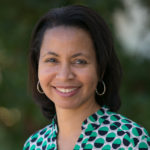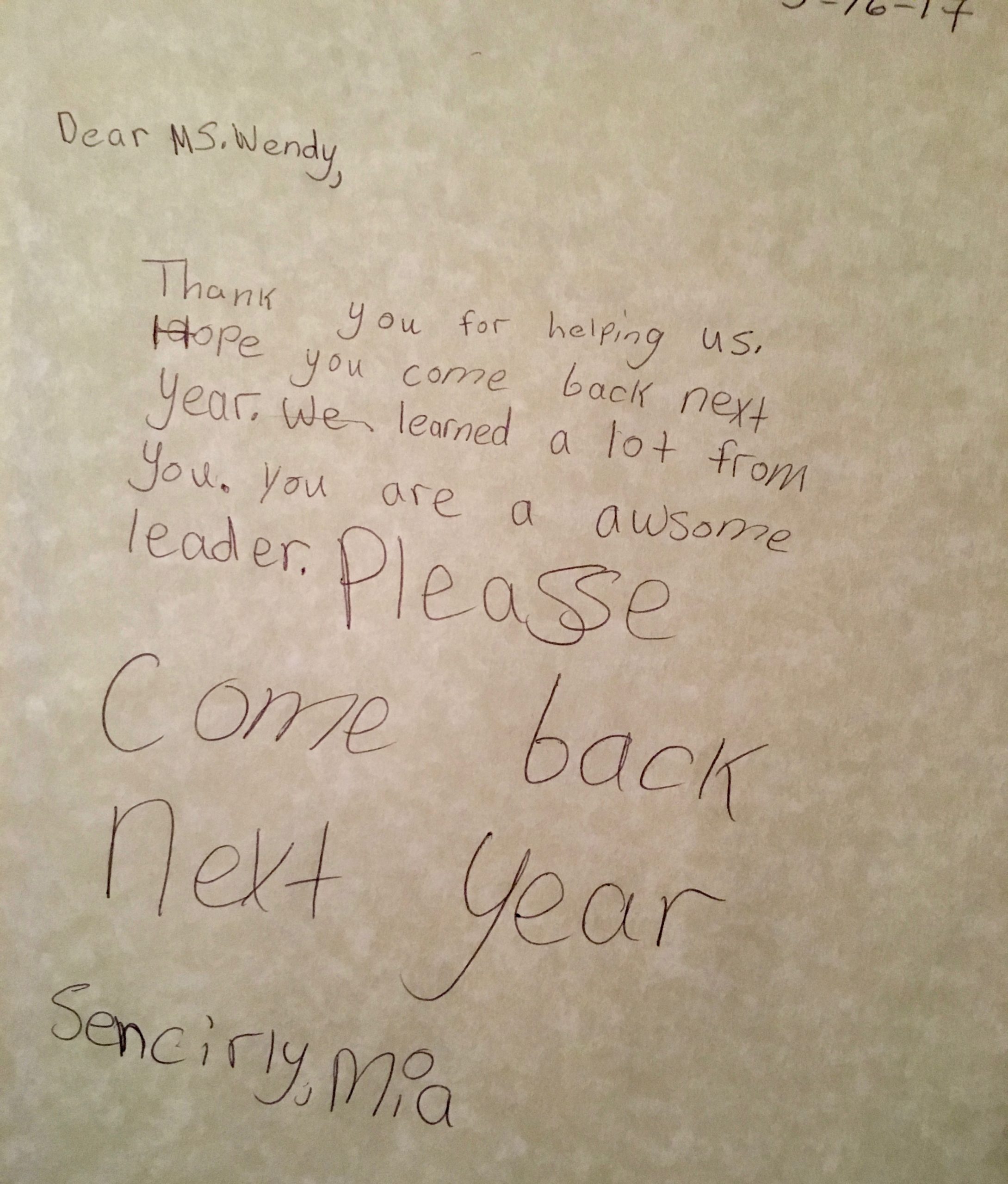
Student-Centered Lens
True to McCulley’s human-centered approach training, she decided to tailor the classes to what the students wanted to learn about, and build writing exercises around that. So she asked her students: What do you want to get out of this program? She was rewarded with some poignant requests. They wanted to make new friends outside their existing social circles. They wanted to learn how to be ladies. They wanted to know what it’s like to go to college, to get outside of Fresno. “I came from one of the poorest cities in the nation, so I could relate to their economic and racial hurdles,” McCulley said. “I wanted to interact with them as a caring adult who comes from the same background.” She brought in an etiquette specialist. She had them do some improvisation activities to think about their choices, to get them to articulate why they’re making those choices. Simple exercises, like “Would you rather be an apple or orange, choose one, then explain why in writing.” During one of McCulley’s exercises, she asked students to write something they liked about themselves as a way to get to understand themselves better. One sixth-grade girl answered, “There’s nothing I like about myself.” “Well, do you take care of your brothers and sisters”? McCulley asked the girl. “Yes,” she said, and then wrote that down as an item on her list. “She needs more affirmation,” McCulley said. “She was one of my better writers, and I told her to keep working on it. One day, she came up and hugged me, didn’t say a word.” Other, more challenging questions she asked her students: Where do you want to live? What do you want to do when you grow up? How much money do you want to make? Do you want to help yourself, your family, or the world? Would you rather cure world hunger or stop crime? Then she asked them to come up with their own hard decisions to understand what it’s like to face these dualities.
